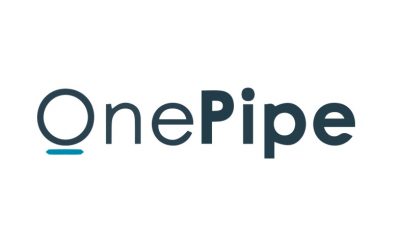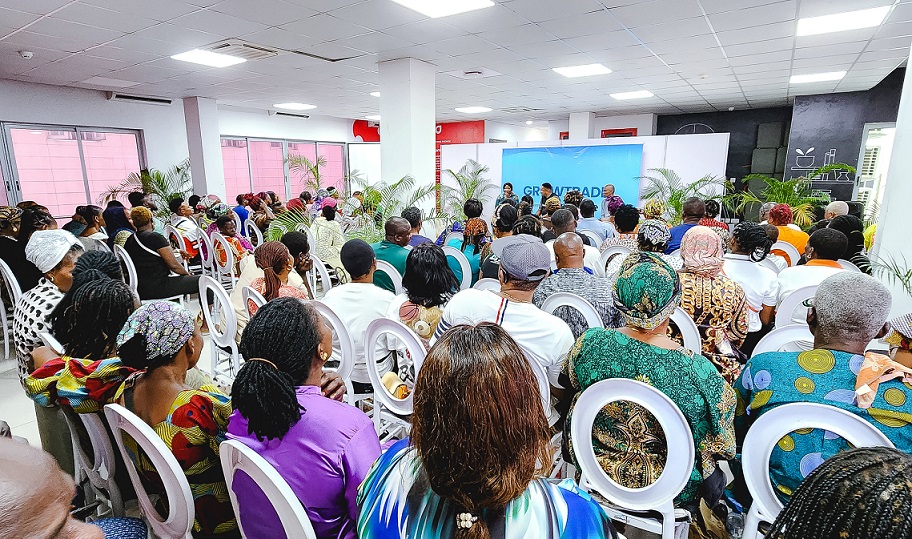Banking
To Make e-Payments More Acceptable, Nigeria Needs to Curb Fraud

By Victor Irechukwu
When a credit alert drops on your phone, chances are you will get excited. Even if it wasn’t a surprise and you were expecting that money. But when it is a debit alert, there’s also a certain type of gloom you feel; you want money to keep coming in but as little as possible of it going out.
It may be safe to say most of us feel that way.
Now, imagine the debit alert was for a transaction you know nothing about. A commonly reported theme has been alerts that your card was used to make deposits on a gambling website, whereas you may never have even indulged in gambling your entire life.
At other times, you are shown a debit alert by someone who wants to purchase goods or services from you, but only later realise they showed you what has now been termed ‘fake alerts’. By this time, your goods, for instance, would have been long gone.
In recent months, social media has been awash with reports of money literally growing wings and leaving some people’s accounts to those of other people without authorisation. Many of these cases have gone viral on social media, causing embarrassment for the banks involved – The issues are either quietly – or corrected with public acknowledgement. But not all are resolved, at least not yet.
As much as the country and even individuals would like to go cashless, these bad experiences leave a sour taste in the mouth, and they have continued to rain on the parade as Nigeria marches towards a cashless economy. It must be stressed that a cashless economy does not mean the theft of money will stop, what it does is to change how thieves go about it. But more importantly, it also doesn’t mean thefts must occur, at least not if systems are strengthened and the right protocols are put in place.
In the electronic world, an article on The Balance Money describes hackers as bank robbers and muggers, and in a cashless society, we are all exposed to them. According to the Nigeria Inter-Bank Settlement System Plc (NIBSS), growth in the use of electronic channels, specifically mobile devices, has also enticed fraudsters into focusing their efforts on these electronic channels.
When an attack is successful and the culprits are able to drain funds from your account, you could be effectively left stranded. God forbid you needed that money for a life-threatening emergency because that could be the end unless you are one of the lucky few whose funds get recovered in a place like Nigeria – and on time too.
Agusto & Co.’s ‘2022 Consumer digital banking satisfaction index for Nigerian banks’, found that approximately 59 per cent of respondents had been fraud victims on the digital platforms of their banks.
The figures in terms of the number of attacks, success rate and amounts lost remain a source of concern. By the third quarter of 2022, the total number of frauds & forgeries cases reported by Nigerian banks was 19,314 as against 27,356 incidents reported in the second quarter of 2022.
But there’s more. While the number of attacks represents a 29.40 per cent decrease between the periods, the total sum reported to be involved in fraud cases increased by 9.50 per cent to N9.62 billion from N8.78 billion in Q2 2022. Also, for the total amount lost due to fraud incidents, there was a significant increase of 207.94 per cent from N1.17 billion in the second quarter of 2022 to N3.62 billion in the third quarter of 2022.
In essence, the number of attacks may have decreased within that particular period, but more money was lost to the fraudulent attacks.
These insights were provided in the Q3 2022 report by FITC, an organisation mandated to receive data on fraud from all Nigerian banks and prepare quarterly reports. The figures show that the highest number of occurrences were recorded under computer/web fraud followed by mobile fraud which includes fraud activities through USSD transactions and ATM-related fraud.
BusinessDay even reported that every day between January and March 2022, there was an average of 450 incidents of frauds and forgeries against Nigerian bank customers. In those three months, the attackers targeted N14.65 billion, with Computer/Web Fraud responsible for N10.57 billion (72.18 per cent), and Mobile Fraud recording 1.48 billion (10.08 per cent).
Those 40,522 attacks resulted in N1.54 billion lost by bank customers. Computer/Web Fraud accounted for 70.51 per cent (N1.07 billion), followed by Mobile Fraud accounting for 17.58 per cent (N270.92 million) at the time.
Going back a bit, data by NIBSS also showed that fraud attempts via mobile channels saw a 330 per cent increase year-on-year (YoY) between 2019 and 2020, while attempts via web and POS channels saw a 173 per cent and 215 per cent increase YoY. In those nine months, 96 per cent of the attacks were successful, and there were 46,126 of such attacks.
“This trend is expected to continue as Nigeria further grows financial inclusion and customers become increasingly dependent on electronic channels for their day-to-day transactions,” said NIBSS. In other words, things are expected to get a lot worse, according to the organisation described as Nigeria’s central switch for the financial industry.
Fraud is and has always been a large threat to commerce and e-payment transactions. It is impossible to totally eliminate the chance of fraud, but applying timely measures and ensuring the use of secure payment infrastructure can help reduce or even eliminate these risks. Security should continue to be top priority for every party involved in ePayment transactions. Fraud prevention involves taking measures to stop fraud from occurring and taking steps to detect frauds quickly (when they occur) and stop them as soon as possible. Different techniques for preventing and detecting frauds are required as there are different types of fraud in e-payment transactions.
Awareness of these risks by merchants, consumers and individuals plays an important role in reducing fraud in e-payment transactions. Merchant awareness and education is important – they should be aware of the types of frauds, implications and application of best practices. Consumer awareness and education is also important in order to reduce identity theft or payment data theft. This would help the individual in adopting an active and cautious attitude when carrying out electronic transactions. It could teach them to be aware of possible risks, avoid e-scams, and minimise giving vital information to merchants (or other parties) when carrying out electronic payments.
Victor Irechukwu is the Head of Engineering at OnePipe
Banking
Public Offer: Sterling Holdco Allots 13.812 billion Shares to 18,276 Shareholders

By Aduragbemi Omiyale
Sterling Financial Holdings Company Plc has allotted shares from its public offer of 2025 to investors with valid applications.
The allotment follows the earlier receipt of final approval from the Central Bank of Nigeria (CBN) and the recent clearance by the Securities and Exchange Commission (SEC).
In September 2025, the financial institution offered for sale about 12,581,000,000 ordinary shares of 50 kobo each at N7.00 per share in public offer.
However, the exercise received wide participation from the investing public, with the company getting 18,280 applications for 16,839,524,401 ordinary shares valued at approximately N117.88 billion.
Following a thorough verification process, valid applications were received from 18,276 shareholders for a total of 13,812,239,000 ordinary shares, representing a subscription level of 109.79 per cent and reflecting sustained confidence in Sterling Holdco’s strategic direction, governance, and long-term growth prospects.
The firm approached the capital market for additional funds for the recapitalisation of its two flagship subsidiaries, Sterling Bank and The Alternative Bank.
The capital injection will support the commencement of full operations and contribute to the group’s revenue diversification objectives.
In line with the guidelines set out in the offer prospectus, Sterling Holdco confirmed that all valid applications will be allotted in full. Every investor who complied with the terms of the offer will receive all the shares for which they applied.
A very small number of applications were not processed or were partially rejected due to non-compliance with the offer terms, including duplicate payments and failure to meet the minimum subscription requirement of 1,000 units or its multiples, as stipulated in the offer documents.
The group ensures a seamless post-offer process, with refunds for excess or rejected applications, along with applicable interest, to be remitted via Real Time Gross Settlement or NIBSS Electronic Funds Transfer directly to the bank accounts detailed in the application forms.
Simultaneously, the electronic allotment of shares has be credited to successful shareholders’ accounts with the Central Securities Clearing System (CSCS) on February 17, and for applicants who do not currently have CSCS accounts, their allotted shares will be temporarily held in a registrar-managed pool account pending the submission of their completed account opening documentation to Pace Registrars Limited, after which the shares will be transferred to their personal CSCS accounts.
Banking
CBN Governor Seeks Coordinated Digital Payment Reforms

By Modupe Gbadeyanka
To drive inclusive growth, strengthen financial stability, and deepen global financial integration across developing economies, there must be coordinated reforms in digital cross-border payments.
This was the submission of the Governor of the Central Bank of Nigeria (CBN), Mr Olayemi Cardoso, at the G‑24 Technical Group Meetings in Abuja on Thursday, February 19, 2026.
According to him, high remittance costs, settlement delays, fragmented systems, and heavy compliance burdens still limit the participation of households and Micro, Small and Medium Enterprises (MSMEs) in global trade.
The central banker emphasised that efficient payment systems are essential for economic inclusion, highlighting that global remittance corridors still incur average costs above 6 per cent, with settlement delays of several days, excluding millions from modern economic activity.
Mr Cardoso cautioned that while digital payments present significant opportunities, they also carry risks such as currency substitution, weakened monetary transmission, increased FX volatility, capital-flow pressures, and regulatory fragmentation.
The G-24 TGM 2026, themed Mobilising finance for sustainable, inclusive, and job-rich transformation, convened global financial stakeholders to advance the modernisation of finance in support of emerging and developing economies.
The CBN chief reaffirmed Nigeria’s commitment to working with G-24 members, the IMF, the World Bank Group, and other partners to build a more inclusive, resilient, and development-oriented global financial architecture.
“We have strengthened our AML/CFT frameworks in line with FATF guidelines, requiring strict dual-screening of cross-border transactions to mitigate risks.
“To deepen regional integration, the CBN introduced simplified KYC/AML requirements for low-value cross-border transactions to encourage broader participation in PAPSS, easing processes for Nigerian SMEs and enabling faster intra-African trade payments.
“We have also embraced fintech innovation through our Regulatory Sandbox, allowing payment-focused fintechs to test secure, instant cross-border solutions under close CBN supervision,” he disclosed.

Banking
Unity Bank, Providus Bank Merger Awaits Final Court Approval

By Modupe Gbadeyanka
The merger and business combination between Unity Bank Plc and Providus Bank Limited remains firmly on course, a statement from one of the parties disclosed.
According to Unity Bank, there is no iota of truth in reports in certain sections of the media suggesting that the merger process had stalled, as the transaction remains firmly on track.
It was disclosed that the necessary regulatory steps have been completed, but only a few other steps to finalise the transaction, especially the final court sanction.
There had been speculations that both lenders may not meet the new minimum capital requirement of the Central Bank of Nigeria (CBN) before the March 31, 2026, deadline.
However, it was noted that the combined capital base of Unity Bank and Providus Bank exceeds N200 billion, which is the minimum requirement to retain a national banking licence under the CBN’s recapitalisation framework.
When completed, the Unity-Providus merger is expected to deliver a stronger, more competitive, and customer-centric financial institution — one with the scale, innovation, and reach to redefine the retail and SME banking landscape in Nigeria.
“The merger with Providus Bank significantly enhances our capital base, operational capacity, and strategic positioning.
“We are confident that the combined institution will be better equipped to support economic growth and deliver innovative financial solutions across Nigeria,” the chief executive of Unity Bank, Mr Ebenezer Kolawole, stated.
Recall that a few months ago, shareholders authorised the merger between the two entities at Court-Ordered Meetings. They also adopted the scheme of merger at their respective Extraordinary General Meetings (EGMs) in September 2025,
The central bank also backed the merger, with a pivotal financial accommodation to support the transaction. The merger also received a further boost with a “no objection” nod from the Securities and Exchange Commission (SEC).
The regulatory approvals form part of broader efforts to strengthen the resilience of Nigeria’s banking system, reinforce capital adequacy across the sector, and mitigate potential systemic risks.
The development positions the combined entity among the 21 banks that have satisfied the apex bank’s new capital threshold for national banking operations.
-

 Feature/OPED6 years ago
Feature/OPED6 years agoDavos was Different this year
-
Travel/Tourism10 years ago
Lagos Seals Western Lodge Hotel In Ikorodu
-

 Showbiz3 years ago
Showbiz3 years agoEstranged Lover Releases Videos of Empress Njamah Bathing
-

 Banking8 years ago
Banking8 years agoSort Codes of GTBank Branches in Nigeria
-

 Economy3 years ago
Economy3 years agoSubsidy Removal: CNG at N130 Per Litre Cheaper Than Petrol—IPMAN
-

 Banking3 years ago
Banking3 years agoSort Codes of UBA Branches in Nigeria
-

 Banking3 years ago
Banking3 years agoFirst Bank Announces Planned Downtime
-

 Sports3 years ago
Sports3 years agoHighest Paid Nigerian Footballer – How Much Do Nigerian Footballers Earn























